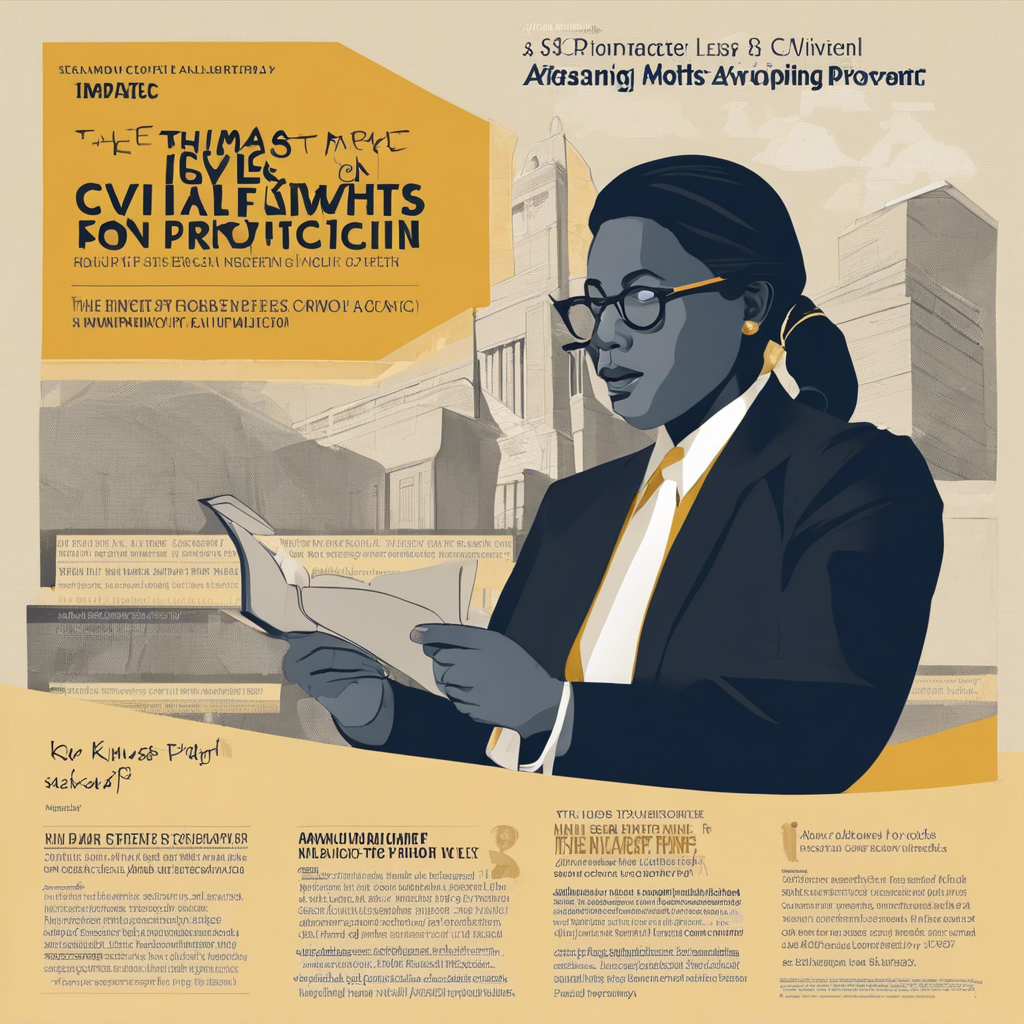Legal advocacy plays a pivotal role in safeguarding civil rights, empowering underrepresented communities to challenge injustices.
The legal profession is often equated with power and influence, but its impact extends far beyond the courtroom. Legal advocacy is a powerful tool that plays a vital role in the protection of civil rights and the advancement of social justice. This article explores the profound impact of legal advocacy on civil rights protection, examining how dedicated professionals and organizations champion the rights of the marginalized and drive societal change. By employing various legal strategies, these advocates ensure that the law serves as a beacon of equity and justice for all.
In today’s world, where social and economic disparities persist, legal advocacy has emerged as a critical means to address systemic injustices and empower individuals and communities to assert their rights.
The Power of Legal Advocacy in Civil Rights Protection
Championing Equality and Justice
Legal advocacy serves as a bulwark against discrimination, prejudice, and systemic oppression. Lawyers and legal organizations who specialize in civil rights take on cases that challenge injustices and aim to bring about meaningful change. These advocates leverage their legal expertise to ensure that the law is applied fairly and equitably, protecting the rights of individuals and communities who have historically faced discrimination.
Breaking Barriers and Advancing Equality
One of the most significant impacts of legal advocacy is its ability to break down barriers and bring about lasting change. Legal professionals work tirelessly to challenge discriminatory laws, policies, and practices, ensuring that they do not perpetuate inequality. Through litigation, they strive to set legal precedents, which can have far-reaching consequences for future cases. For instance, the landmark Brown v. Board of Education case in 1954, argued by Thurgood Marshall and the NAACP Legal Defense Fund, ended legal segregation in public schools, paving the way for the civil rights movement.
Empowering Communities Through Legal Action
Legal advocacy empowers marginalized communities by providing them with a platform to challenge injustices and seek remedies. Advocacy organizations often work closely with local communities, offering legal support and guidance to individuals who may not otherwise have access to legal resources. This collaboration not only strengthens community resilience but also fosters a sense of ownership and agency in the pursuit of civil rights.
Strategies for Effective Legal Advocacy
- Strategic litigation: Bringing carefully selected cases to court to challenge discriminatory laws and set legal precedents.
- Policy advocacy: Working with lawmakers to draft, amend, and implement laws that promote civil rights and equality.
- Community education: Empowering individuals to know their rights and providing legal resources to those in need.
- Coalition building: Collaborating with community organizations, activists, and other stakeholders to amplify the impact of legal efforts.
Here are some recommended external links to enhance the discussion:
1. The ACLU: Protecting Your Rights
2. Southern Poverty Law Center: Fighting Hate and Seeking Justice
3. Lawyers’ Committee for Civil Rights: Advancing Racial Justice
Real-Life Impact: Changing Lives Through Legal Advocacy
Legal advocacy has had a profound impact on numerous individuals and communities. For instance, the Supreme Court’s recognition of same-sex marriage as a fundamental right in the United States in 2015 was a direct result of advocacy efforts. This decision not only granted legal recognition to same-sex couples but also symbolized a significant shift in the country’s attitude towards LGBTQ+ rights.
Frequently Asked Questions
How does legal advocacy help in cases of discrimination?
Legal advocacy provides a powerful tool to challenge discriminatory practices. Advocates work to gather evidence, build strong cases, and present compelling arguments in court to ensure that victims of discrimination receive justice.
What role does legal advocacy play in policy change?
Advocates collaborate with lawmakers to draft and propose laws that promote civil rights and equality. They also work to amend existing laws that may perpetuate discrimination, ensuring that the legal system serves as a fair and just framework for all.
Conclusion: Advancing Civil Rights Through Legal Action
Legal advocacy is a cornerstone of civil rights protection, offering a means to challenge injustices and drive societal change. Through strategic litigation, policy advocacy, and community engagement,legal advocacy legal professionals and organizations empower individuals and communities to stand up for their rights. By ensuring that the law serves as a tool for equality and justice, legal advocacy plays a pivotal role in building a more inclusive and fair society. The impact of this work is evident in the lives changed, rights protected, and barriers broken down, making legal advocacy a powerful force for good.
